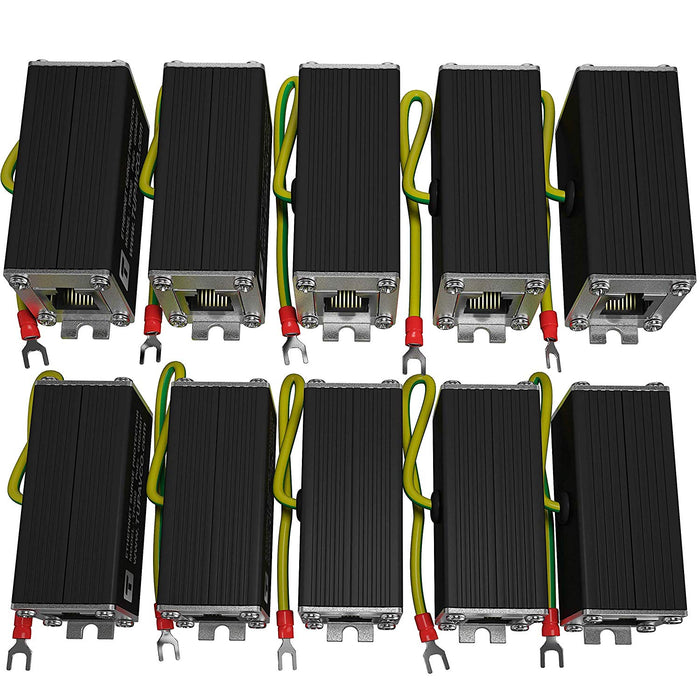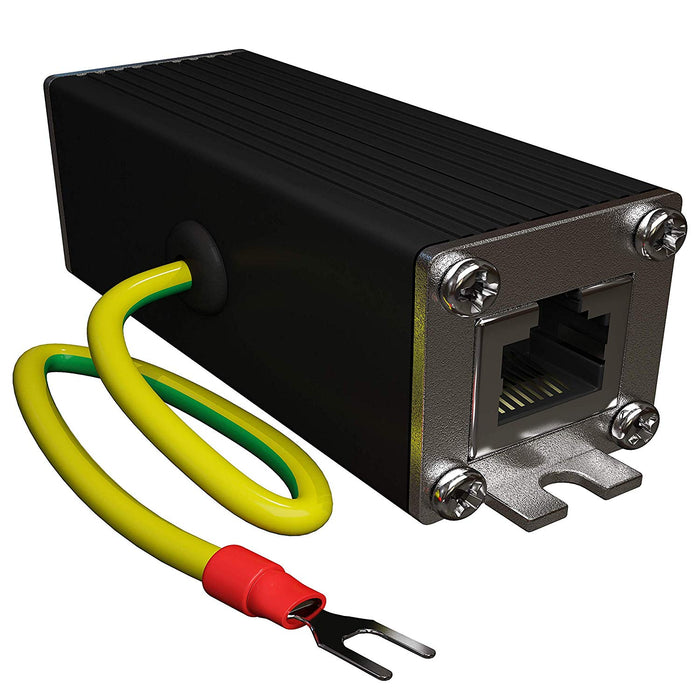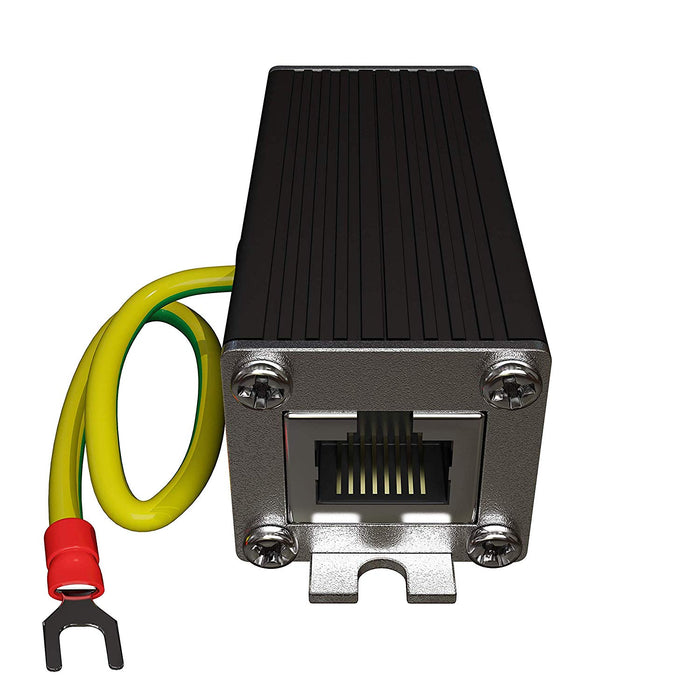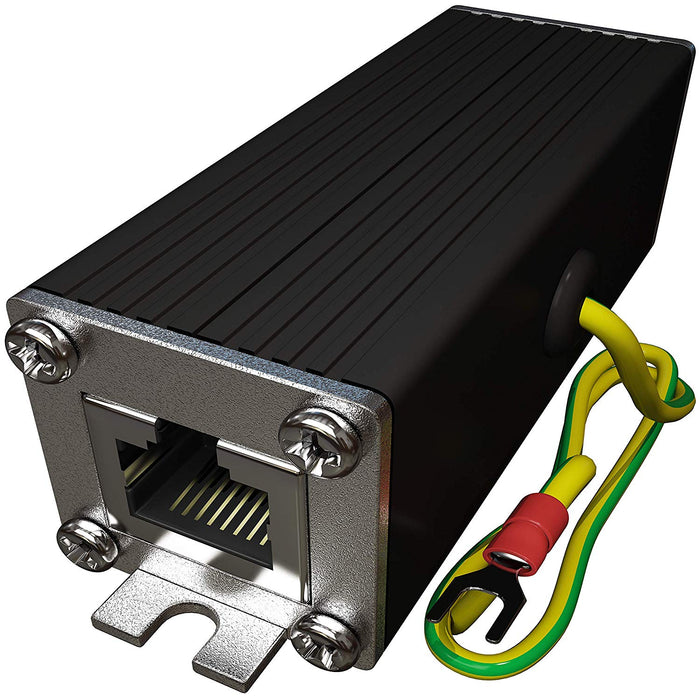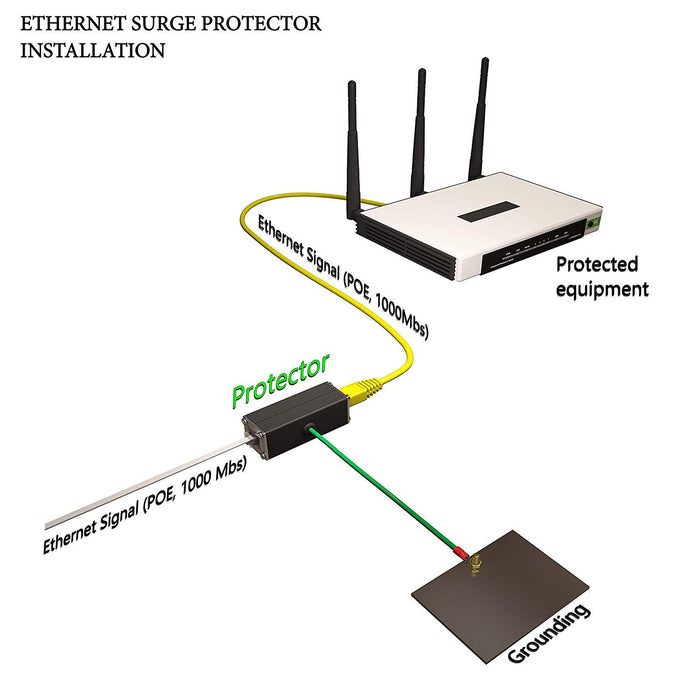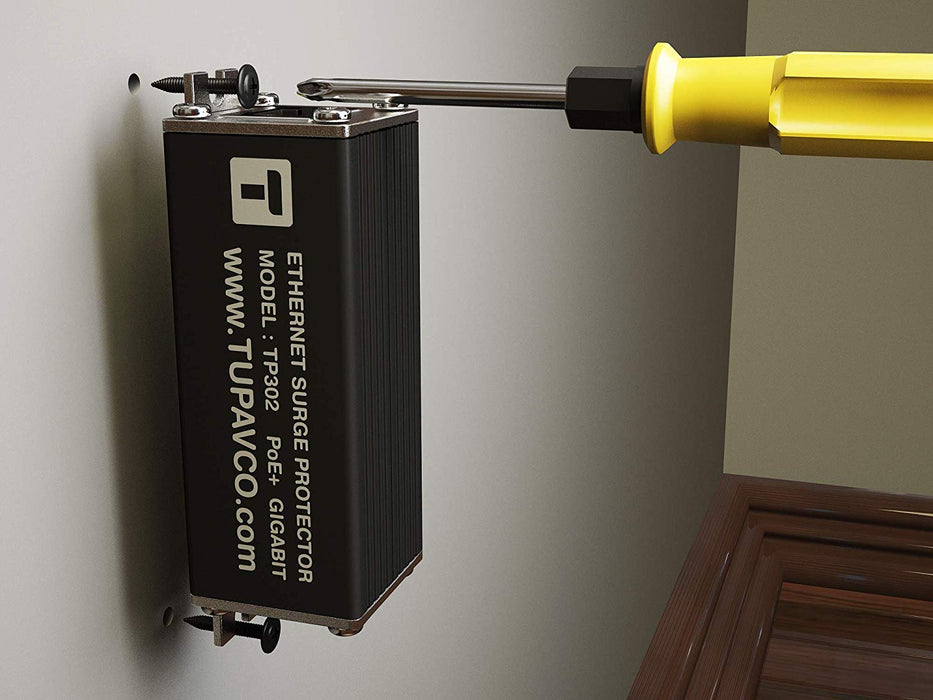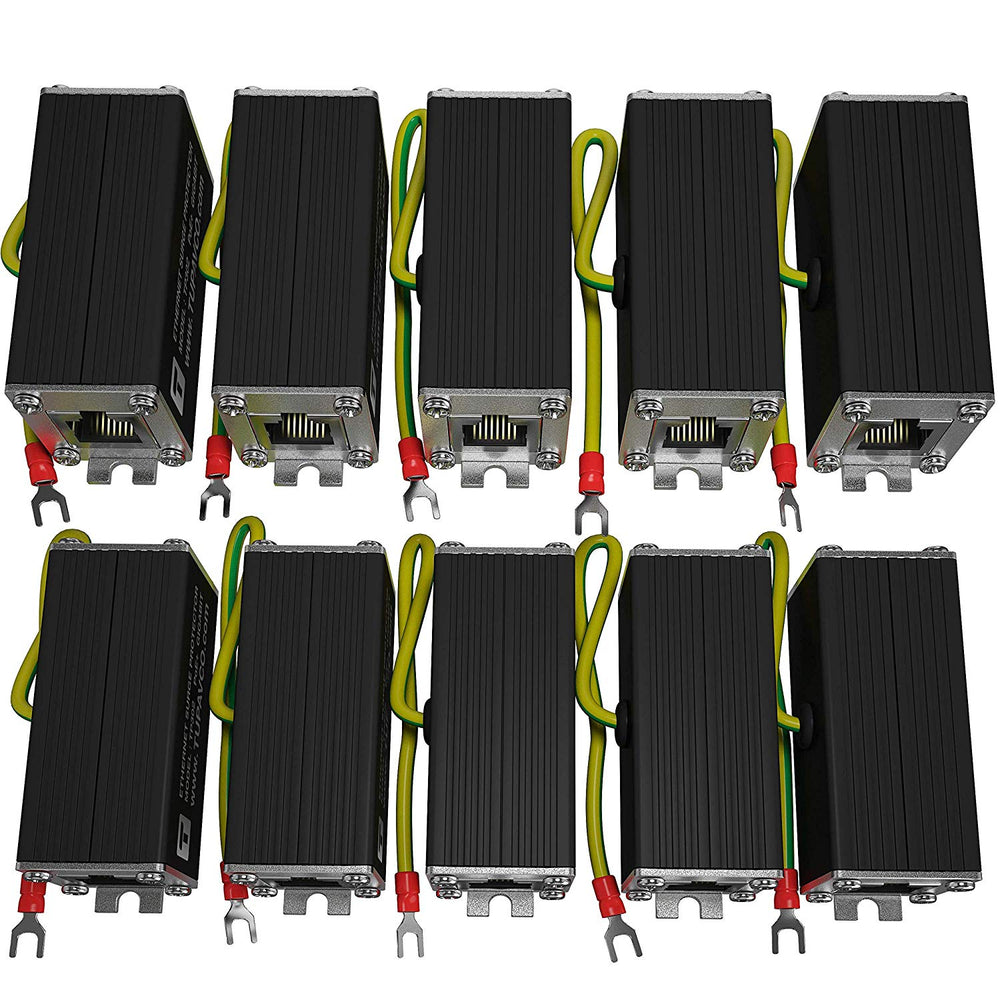Tupavco TP302 Ethernet Surge Protector PoE++ Gigabit RJ45 Lightning Suppressor (10 Pack)

UPC: 638362929686
Model Number: TP302x10
10 Pack of Ethernet Surge Protector TP302
Ethernet Surge Protector is a surge protection device (SPD) that is inserted inline on an RJ45 CAT6/CAT5/CAT5e cable to prevent damage of electronic networking equipment.
Powerful surges that the device protects against include direct lightning strikes, voltage spikes, or PoE overvoltages. Despite the primary protection (a direct strike to a line), the thunder arrestor also offers secondary protection, which will arrest EMF induced surges (nearby lightning).
Ethernet Surge Suppressor TP302 use a Gas Discharge Tube (GDT) on all 4 pairs (8 wires). Gas discharge tubes dissipate the voltage transient through a contained plasma gas which harnesses excess voltage in the incoming power and releases it safely. It ensures the safety of a wide array of valuable components such as network hub, switch, router, modem, bridge, repeater, or any part of ISP (internet service provider) network or LAN system.
POE Surge Protector allows a single RJ-45 cable to provide both data connection and electric power to device such as wireless access point, IP and security camera, VoIP phone, computer and others. Surge Arrestor TP302 is designed to protect PSE (power-supply equipment) connected to a network from transient overvoltages. The ethernet surge protector PoE supports both Mode A (Pins 1,2+ 3,6-) and B (7,8+ 4,5-) of the 802.3af standard for supplying DC power. 802.3af (PoE) can deliver up to 15.4 watts per port over Cat5 cables with 12.95W assured to be available at the powered device, while 802.3at (PoE++) can deliver up to 30 watts over network cables with 25.5 watts available to devices. For that reason, PoE Plus is also known as High PoE. Ethernet surge protector allows PoE injected into the LAN cable at a voltage up to 60 volts DC, and typically 48 VDC is used.
The unit’s data rate of Gigabit 10/100/1000 (GbE) transfer supports an ultra-fast maximum data rate of 1 Gigabit per second (Gbps - 1000 Mbps) and does not affect the speed performance in the local area network.
The Ethernet lightning arrestor must be properly grounded to work. The ethernet ground wire (11 Inch - 16 AWG) on the surge protector needs to be connected to ground through the shortest path. Excess electricity will follow the path of least resistance. In most cases, a ground busbar on an electrical panel or network rack cabinet is already grounded and is typically the easiest way to ground the wire. Other options to ground RJ45 surge protector are grounding block on the breaker panel, grounding rod or terminal of the closest outlet by connecting the ground wire to circular grounding hole on the grounded outlet center screw.
The lightning arrestor can be used with unshielded twisted pair (UTP) or shielded (STP) cables. The arrester is housed in a cast aluminum enclosure. The metal housing allows shielded current to be passed through the metal case of the network surge protector.
The Line-to-Line ethernet surge protection mode helps protect against short circuits between different nodes of the network system while the Line-to-Ground mode protects against short circuits between the network node and the earth. As it is not known where the transient will happen, having both modes protected ensures damage is minimized. Nominal Discharge Current of 20KA defines the peak value of the current that can be passed through the SPD having a waveshape of 8/20μs microsecond where the RJ45 lightning arrestor remains functional after 15 surges.
Once the surge voltage exceeds its designed rating it “begins to clamp” and starts to conduct energy directly to the electrical grounding system. A bidirectional clamping on CAT5 surge protector allows levels above and below the reference voltage by clamping the voltage that can cause damage.
Network surge protector works in both directions (IN/OUT), so the source input signal cable can be connected to any side. It is not important which side the equipment is behind, however the surge protector will protect networking equipment only on the opposite side of where surge occurs. To protect devices on both sides, it is recommended to have one of the surge protectors on each end of the RJ45 cable in the network topology.
Investing in a small, easy to install surge protector with all of the needed features and proven reliability can be the safest and most cost-effective solution for protecting your whole Ethernet network.
Nominal Discharge Current (8/20μs): 20 KA
Nominal PoE voltage : <60V
PoE current: 1.6 A / 2 pairs, 3.2 A / 4 pairs
PoE Mode Support Mode A and B for Power
Impedance 100 ohms
Tested standards IEC 61643-21, IEC61000-4-5
Clamping Voltage Line-Ground: 72 Volts
Clamping Voltage Line-Line: 72 Volts
Protection Modes Line-Line, Line-Ground
Operating Temperature -40°C (-40°F) to +80°C (+176°F)
Outside Dimensions (W*L*H) 26*26*70 mm
Weight: 60 g
 FREE Shipping to Continental USA
FREE Shipping to Continental USA 





